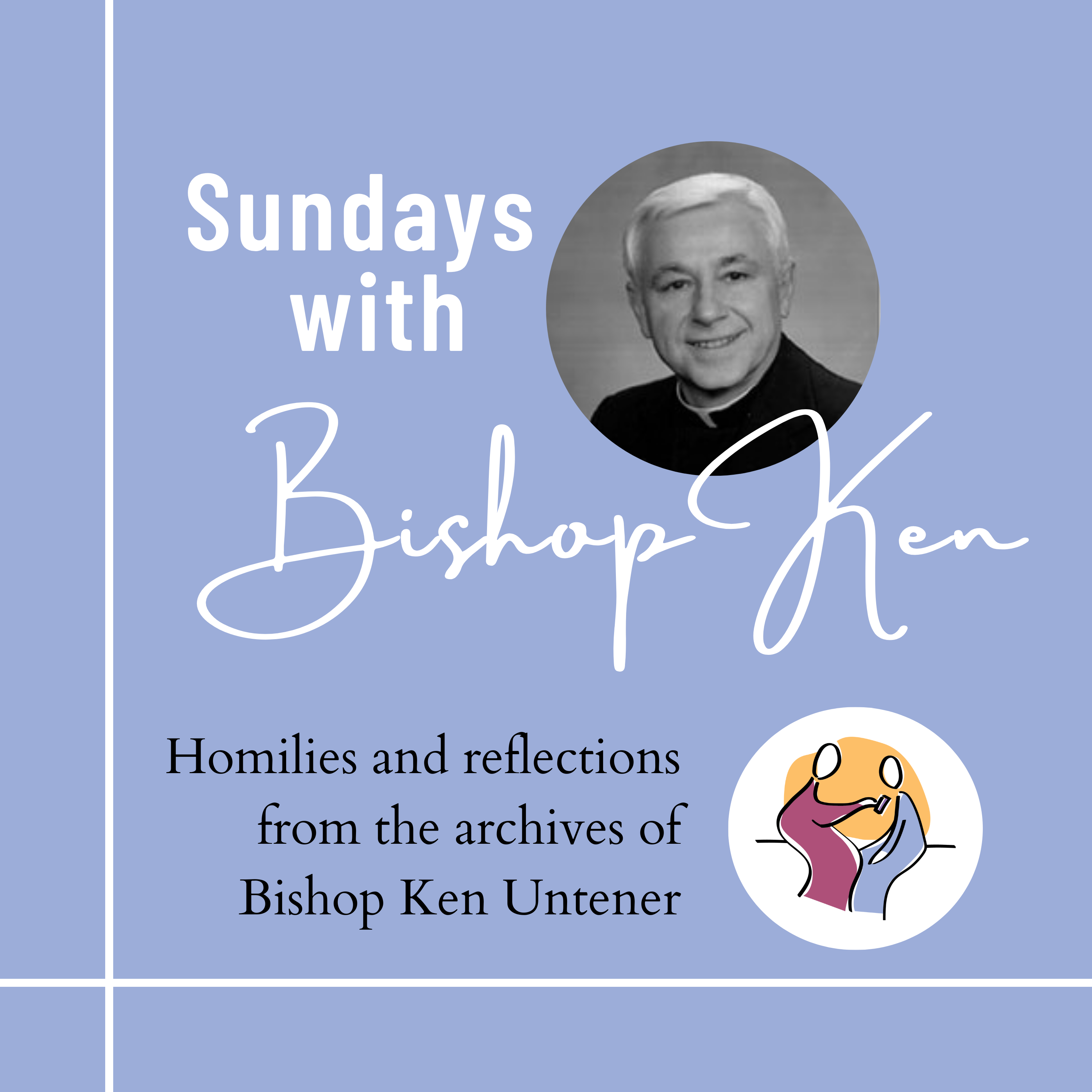Episode Transcript
[00:00:04] Speaker A: Welcome to Sundays with Bishop Ken, a weekly podcast brought to you by the publishers of Little Books of the Diocese of Saginaw.
Each Sunday of Ordinary Time, the Gospel and Bishop Ken's homily are proclaimed by members of our faith community during the seasons of Advent, Christmas, Lent and Easter. Our Sunday prayer time will be taken from the Little Book's reflections for that season.
We are pleased to spend this quiet time with you today.
[00:01:02] Speaker B: Hello, its March 23rd.
Today the church celebrates a beloved saint who pursued God's will above human praise in his work for justice.
Born In Spain in 1538, Turribias Mograveo was consecrated Archbishop of Lima, Peru in 1581.
He worked to protect the rights of the indigenous peoples of Latin America from the oppression of the Spanish colonists, efforts that have had a lasting impact.
As a missionary, Archbishop Turriba was known to travel great distances, often on foot, to reach remote communities in Peru.
His love for the people was felt in his efforts to educate, baptize and share the love of Jesus Christ.
Saint Turribaeus founded the first seminary in the Americas and encouraged native men to become priests with hopes the church would continue to grow.
A champion of the poor, the Archbishop was unpopular among colonial leaders and members of the Spanish elite who didn't want to be confronted for mistreating or exploiting natives.
Despite the challenges he faced to reform and improve the conditions for the most vulnerable, he remained a hopeful and caring leader.
Throughout more than two decades of ministry, Archbishop Turribaeus confirmed over a half million people, including Saint Rose of Lima and Saint Martin de Porres.
Saint Turribaeus was a patron saint of indigenous rites, Latin American bishops, and Peru.
He died on this date in 1606 and was canonized in 1726.
Last week we discussed liturgical prayer.
Today we're going to discuss another traditional form of prayer, lectio divina.
A very old way of praying is called lectio divina. Holy reading.
This is simply the slow reading of Scripture.
We take a short passage, calm our minds, decide how long we're going to spend in prayer and read the scripture slowly.
God will speak to us through these words.
We don't know where, when or how. We simply read slowly until something catches us. It's usually God speaking live to us.
We talk to God about it for as long as it lasts. Then we read on slowly until something else catches us, and so on until our time for prayer is finished.
We're not trying to study the scriptures, we're simply letting God speak to us through these words.
The thoughts that come may seem to have nothing to do with the words themselves, but sometimes that's how God speaks to us.
We simply open ourselves to receive whatever God has to say.
Try it now, using the opening words of John's Gospel. Read slowly. Stay with whatever catches you. You don't have to get through the whole passage.
In the beginning was the Word, and the Word was with God, and the Word was God. He was in the beginning with God. All things came to be through him, and without him, nothing came to be.
What came to be through him was life. And this life was the light of the human race, the light that shines in darkness, and the darkness has not overcome it. And the Word became flesh and made his dwelling among us.
Spend some quiet time with the Lord.


